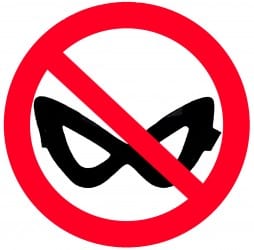Copyright, Trademark and Sex Workers
 When it comes to intellectual property, all content creators face challenges and issues when it comes to protecting their intellectual property. Whether its piracy, plagiarism or other issues, virtually everyone who has created content has seen it misused in some way.
When it comes to intellectual property, all content creators face challenges and issues when it comes to protecting their intellectual property. Whether its piracy, plagiarism or other issues, virtually everyone who has created content has seen it misused in some way.
However, sex workers are in a unique situation that, in some cases, makes addressing those challenges much more difficult.
This isn’t because sex workers aren’t protected by intellectual property laws or don’t create content with value (commercially and artistically), it’s because the stigma associated with sex work makes it difficult to enforce the rights that they have.
Unfortunately, there are no simple answers to this and, though I’ve successfully helped sex workers in the past with copyright enforcement efforts, these issues were ever-present in those efforts.
The truth is that intellectual property enforcement is very different for sex workers than it is for other types of creators and, until the stigma around it changes, those challenges aren’t likely to go away.
Intellectual Property and Sex Workers
 Sex work is an umbrella term that includes a wide variety of jobs in and around the sex industry. Though prostitution is one such job, most jobs that are considered “sex work” are completely legal such as exotic dancers, phone sex operators, adult film stars, etc.
Sex work is an umbrella term that includes a wide variety of jobs in and around the sex industry. Though prostitution is one such job, most jobs that are considered “sex work” are completely legal such as exotic dancers, phone sex operators, adult film stars, etc.
Many, if not most, of these jobs (and most sex workers) depend heavily on the Internet for their job. Whether it’s how they promote themselves or simply where they work, the Internet has become a key component of most sex workers lives.
In that regard, sex workers are like all other creatives that work online. They build websites, publish photos, write blog posts, upload videos and so forth, all things that are protected by copyright. They also, most likely, have a domain name and/or a trade/business name that is potentially protected by trademark.
Exactly what kinds of intellectual property are involved depends heavily on the specific case. For example, someone who does webcam shows likely has a website, marketing content, promotional images, promotional videos, videos that are for sale/download, all of which are copyright protected. Meanwhile, an exotic dancer may a very small online presence and be much more concerned about their name and its (potential) trademark protection.
Still, every sex worker is, to some degree, a content creator and an intellectual property rightsholder. However, when it comes time to enforce those rights they face obstacles that most other creators don’t.
The Challenges of Enforcement
 The first challenge sex workers face is the sheer amount of infringement that takes place. It’s a virtual guarantee that any sexually-oriented content put up for sale on the web will be heavily pirated. For every type of sexual content one can think of, there are sites and communities that focus on pirating it.
The first challenge sex workers face is the sheer amount of infringement that takes place. It’s a virtual guarantee that any sexually-oriented content put up for sale on the web will be heavily pirated. For every type of sexual content one can think of, there are sites and communities that focus on pirating it.
But while piracy may be expected, there’s also a large amount of plagiarism and copy/pasting by competitors in the sex work trade. This includes using images from other sex workers, copying the content of advertisements and other marketing material. This is because competition in the industry is fierce and often highly localized. Sometimes one worker will assume they can use content from another city without risk of being discovered.
However, as many find out, on the Web, there is no such thing as local content and when it is discovered, the copy/pasting causes potential clients to distrust both the victim and the plagiarist, which is a huge hurdle in a field that operates almost entirely on trust.
Still, many creators work in fields with high levels of infringement, but sex workers face unusual challenges when it comes to battling those issues.
First is the simple issue of anonymity. Even if the creator is in a completely legal field, the stigma and hazards of sex work pushes most to seek out pseudonyms for their work. Filing a lawsuit or even self-filing a DMCA notice would puncture that protection by requiring them to give up their real name and/or contact information.
While there are steps that one can take to protect their privacy when filing a DMCA notice, if one is trying to reasonably anonymous, they are most likely going to need outside help.
Second, even if they are able to fire off takedown notices for copyright or trademark issues, there’s no guarantee that the site or host its sent to will respond. Sites that sex workers deal with are more likely to either be at the fringes of the law or be hosted in countries that don’t follow a notice-and-takedown system. As a result, compliance for takedown notices from sex workers tend to be lower than other types of content.
That being said, most sites still respond to such requests, especially since they are trying to steer clear of all legal trouble, but the minority that doesn’t is greater for sex workers.
Finally, practical access to the legal system is very limited for sex workers. Even if a sex worker is willing and able to come forward to file a lawsuit, there’s no guarantee that they would be able to find the person they are suing, much less obtain a judgment from them. Furthermore, lawyers, judges and others in the legal system are often disinclined to assist.
In short, while sex workers may have the same rights as other content creators when it comes to intellectual property, the both practical realities of the profession and the stigma of it combine to make enforcing those rights very difficult.
Fortunately, there are still some things that sex workers can do.
Steps Sex Workers Can Take
While sex workers face challenges in protecting their content, there are steps that they can take to mitigate the problem:
- Watermark All Images/Videos: Before putting visual content on the Web, watermark your content with a difficult to remove mark. This won’t discourage piracy, but will discourage others from claiming it as theirs and may help build a brand.
- Be Clear About Your License: If you want to allow people to share your work under certain conditions, consider using a Creative Commons or similar license. If you don’t, make it clear that all rights are reserved. A good copyright notice can avoid a decent amount of infringement.
- Search for Your Content: Use search engines to look for your name, do searches for your text and find similar images to your own. Knowledge can be very powerful.
- Consider Cease and Desist: Though cease and desist letters have fallen out of favor in recent years, sex workers often find them useful because working directly with an infringer means not having to deal with the legal system and the challenges that involves. Could work out best for both parties.
- Community Enforcement: Sex workers are a community and, like any other community, it has ethical standards and behavioral norms it can enforce. We’ve seen this type of enforcement work on sites like Reddit as pressure from within the community is often the best way to bring about real change.
But even with all of those steps, it’s likely that copyright or trademark issues will arise and they can be difficult to resolve for the reasons outlined above. In those cases, it’s generally best to seek outside help, ideally from a lawyer.
However, in some cases, services that assist with DMCA takedowns, such as mine at CopyByte, can help. But you’ll likely want to discuss using them with a lawyer to ensure that all of your rights are protected.
Bottom Line
In the end, it’s very difficult for sex workers to enforce their rights in their intellectual property. The stigma around sex work not only pushes sex workers to remain anonymous, but also makes those who would ordinarily help less likely to do so.
Still, as content creators who often make much of their living off of either their content or their name, protecting their rights is important. However, like all content creators, one has to make practical decisions about when and where to draw the line and when to let go.
Sadly, for sex workers, that line is often earlier than for other creators simply because of the increased difficulty in handling such matters.
But that doesn’t mean that sex workers can’t and shouldn’t fight back. When your content is your business, you have to take reasonable steps to defend it, even if it is more of an uphill battle to do so.
Want to Reuse or Republish this Content?
If you want to feature this article in your site, classroom or elsewhere, just let us know! We usually grant permission within 24 hours.
